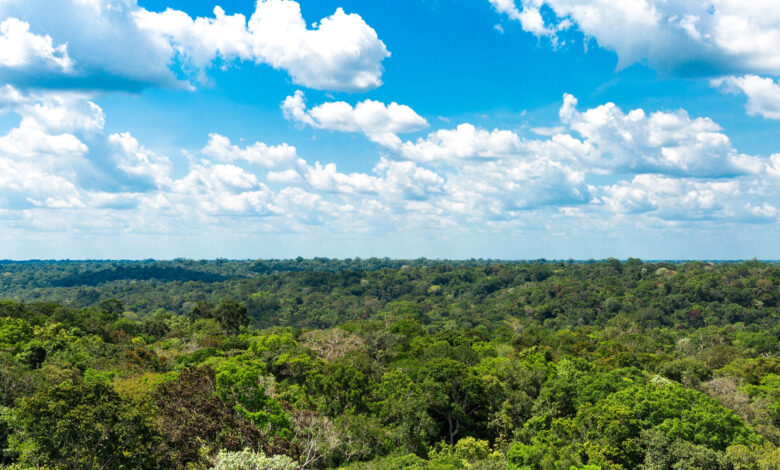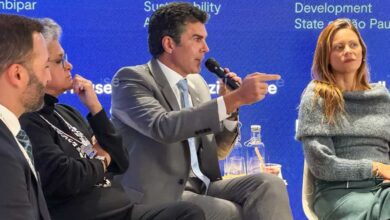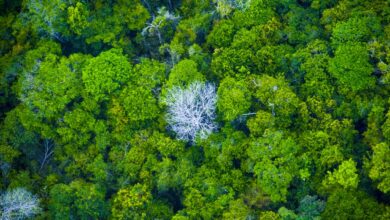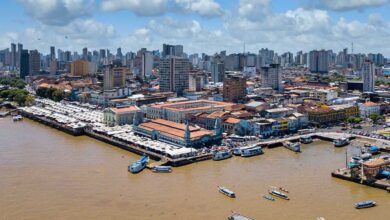
Senator Jader Barbalho included the Amazon in a specific credit line for the carbon market
Climate change caused by the emission of greenhouse gases has been one of the most debated topics in the environmental area in recent years, generating a race by several countries, international organizations, companies and other regional actors to find solutions and encourage measures that can curb the global warming. In Brazil, one of the initiatives to encourage companies to minimize the environmental impact of their economic activities is the regulation of the Brazilian Market for Emissions Reduction (MBRE).
Last Tuesday, the 29th, the Economic Affairs Committee (CAE) of the Senate approved a bill that proposes the rules and actors that will operate in this rich market, which will contribute to the preservation of Brazilian forests, with emphasis on the Amazon, which is home to the greatest biodiversity on the planet in terms of plants, animals and microorganisms. With the regulation of this new market in Brazil, the world powers are already starting to bet on the reduction of gas emissions that cause the greenhouse effect.
And the bill approved at the CAE – which is now going to the Senate Environment Commission – instituted specific lines of credit aimed at structuring Verified Emissions Reduction (RVE) generation operations by facilities, regulated or not, located in areas under environmental risk and, primarily, in the Legal Amazon.
The author of the inclusion of the Legal Amazon in the project that will regulate the carbon credit market was the senator for Pará, Jader Barbalho (MDB), who presented a bill with this proposal, which ended up being included in the substitute presented by the senator from Ceará , Tasso Jereissati, rapporteur for the matter at CAE.
“This is the great opportunity we have to save the planet, through exchange between nations. On the one hand, Brazil, which is home to the lungs of the world, which is our forest, will be monetized for keeping the forests alive, the forest standing. On the other hand, the most polluting countries that have destroyed their forests will turn preservation actions into financial assets so that forests continue to play their role in removing carbon dioxide (CO2) from the atmosphere, the main gas responsible for the increase in the greenhouse effect” , explains Senator Jader.
“And Pará will be the great protagonist of this new market” evaluates the congressman, citing the actions developed in the last 4 years by Governor Helder Barbalho. With positive results presented to the main world leaders who participated in the United Nations Conference on the Environment, COP 27, the governor of Pará detailed the actions that have been developed so that the transformation of the standing forest becomes a financial asset by offsetting emissions of carbon, which, in Senator Jader’s opinion, will boost the social and economic development of the State of Pará.
The emissions regulatory market was foreseen in the National Policy on Climate Change, which became a law in Brazil in 2009. This market will be operated in commodity and futures exchanges, stock exchanges and organized over-the-counter entities, authorized by the Securities and Exchange Commission (Comissão de Valores Mobiliários). CVM), where securities representing certified avoided greenhouse gas emissions will be traded.
Data from the National Institute for Space Research (Inpe) released last week show that Pará has already managed to reduce deforestation by 21% in the Amazon area under its jurisdiction. The numbers come from the comparison of the period from August 2021 to July 2022, and August 2020 to July 2021, according to the calendar of the year of the System for Monitoring the Deforestation of the Brazilian Amazon Forest by Satellite 2022 (Prodes).
“Pará is being prepared to be one of the main protagonists of this new global need. It is increasingly evident that if urgent action is not taken to contain climate change, Brazil will be one of the biggest victims of environmental tragedies. Just look at how the year 2022 began, with the tragedy in Petrópolis and floods in several states, including Pará”, reinforces Senator Jader.
Brazil has an extensive territory and diverse ecosystems, in addition to immense biodiversity and climatic variety, but all of this is in danger due to the ecological imbalance fostered by the current development model and by climate change.
According to data from the World Wide Fund for Nature – WWF, due to rising temperatures and decreasing rainfall in the region, the Amazon may experience droughts that will slow down the process of forest regeneration, loss of biodiversity and, possibly, species extinction.
Droughts, floods and natural disasters will become more and more frequent, which can cause a reduction in harvests and food production if there is not a set of changes and commitment to combat them.
The Amazon influences the environmental balance of the entire planet and plays a fundamental role in Brazil’s economy. The forest and plants in general manage to remove carbon dioxide (CO2) from the atmosphere through photosynthesis. In this process, CO2 and water are transformed into oxygen, water and glucose using solar energy.
For the financial market, after the bitcoin boom, carbon could be the next asset to take off in this decade.
The stimulus from the European Union, China and the US to reduce emissions and the limited supply of carbon credits until 2030 should drive the appreciation of the asset in the long term; Assets have nearly tripled over the past three years and may just be at the beginning of a long bull cycle.
– The carbon market emerged in the late 1970s and gained momentum in the 1990s;
– Its objective is to decarbonize the air and carbonize the earth;
– Specialists indicate that the Brazilian carbon market has the potential to generate revenues of up to US$ 100 billion a year.







